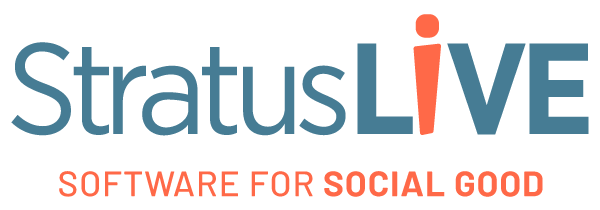It's not easy to build lifelong donor relationships.
Doing so requires a commitment to change your fundraising culture by moving past outdated methods and toward a more comprehensive view of donor relationships.
It can sometimes be a daunting prospect to shift from transaction-based fundraising to relationship-based fundraising. However, nonprofit organizations are beginning to realize that it's worth the effort because it works.
Why donor relationships?
Relationship-based fundraising is at the heart of StratusLIVE's core philosophy. It influences the way we build software from the ground up because we believe building strong relationships with donors is the key to healthy, sustainable nonprofit growth.
The argument for donor relationships was recently lent some additional support following the release of a new study that evaluated the latest research regarding social psychology and relationship dynamics to apply these insights to building relationships with donors.
By examining the donor's motivational interests, fundraisers may build the foundation for a lifelong relationship with the donor, one that should prove advantageous for both the nonprofit as well as the donor.
As a donor's relationship to and with a nonprofit progresses, their needs and requirements with relationship to that nonprofit will change over time. The study notes the following stages of the donor life cycle:
- Acquisition - branding, message
- Engagement - involvement, impact
- Retention - donor-centric benefits
The study notes that while many donors are satisfied with a transactional relationship with a nonprofit—as is sometimes the case with workplace giving campaigns—each donor and each situation should be carefully considered in order to determine if a merely transactional relationship is appropriate. In the case of corporate and/or high net worth individuals, the study notes, relationship-based fundraising is often the best approach.
Adapting relationships to donors
The study notes that commitment, trust, and satisfaction are the best indicators of future donor loyalty and lifetime value. To reach these benchmarks, the study makes the following recommendations:
We think that two of the most important of these for the future of relationship fundraising are creating a sense of identity for the donor with the charities they support (Identity Theory); and moving donor relationships from ‘exchange’ (where partners keep track of reciprocated costs and benefits) to ‘communal’ relationships (were partners forget about costs and benefits and instead care about each others’ needs and wants as if they were their own).
These recommendations are much better indicators than RFM and other outdated methods of measuring donor engagement and lifetime value. The study even recommends tying fundraiser compensation to donor satisfaction metrics rather than annual income metrics.
Some of the study's findings were more disheartening. For example, many fundraisers reported that they "did not feel they had the support or engagement of their colleagues or board to deliver relationship fundraising". This is a disappointing yet all-too-common refrain that we hear from fundraisers who are trying to innovate and drive their organizations toward success.
The report suggests nonprofits adopt a commitment to ‘total relationship marketing’, which focuses on building relationships with all stakeholders that enable nonprofit organizations to develop true lifelong relationships with their donors.






